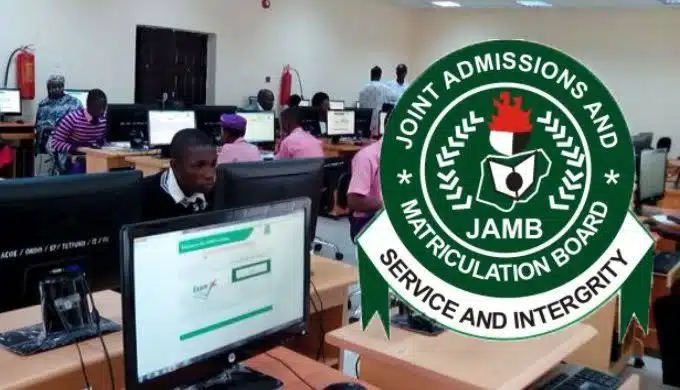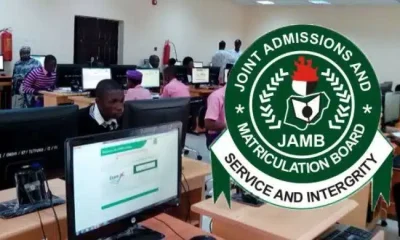EDUCATION
JAMB Calls for Urgent Action Against Rising Digital Exam Malpractices Rocking Nigeria

The Joint Admissions and Matriculation Board (JAMB) has raised the alarm over the growing sophistication of digital examination fraud in Nigeria, calling for a more aggressive and innovative approach to curb the menace.
In a bulletin released on Monday, JAMB Registrar, Professor Ishaq Oloyede, emphasized the urgent need to tackle the escalating trend of malpractice, particularly in the wake of the 2025 Unified Tertiary Matriculation Examination (UTME).
Oloyede described the current wave of digital fraud as not only troubling but also a serious threat to the future of education in Nigeria. He warned that unchecked examination malpractice undermines learning, damages research integrity, and hinders national development.
“There is an urgent need to act on these troubling developments,” the registrar stated, urging the public and stakeholders not to downplay the gravity of the situation.
He criticized individuals who focus their energies on promoting conspiracy theories and hate speech instead of collaborating to address the growing challenge of technologically advanced exam fraud.
“During the 2025 UTME, we uncovered new, high-level malpractice schemes,” Oloyede said, noting that these discoveries led to the cancellation of some results and the arrest of several suspects across the country.
He revealed that some Computer-Based Test (CBT) centres and school owners were found to have collaborated to hack into the networks of targeted CBT centres. These hackers were able to remotely access candidates’ computers and submit exam responses directly to local servers.
Among the high-tech fraud techniques identified were the use of AI-powered photo manipulation to blend candidates’ faces with those of impersonators—many of whom were current undergraduates. Other methods included the use of multiple individuals’ fingerprints during a single candidate’s registration and the extension of local area networks from shady centres to hidden “strong rooms.”
There were also instances of candidates being paired with hired professional exam takers to gain access to examination halls.
Oloyede lamented the involvement of many undergraduates in these fraudulent practices and disclosed that over 3,000 candidates had so far been identified as either direct beneficiaries or accomplices.
FOLLOW US












![Top Nigeria Newspaper Headlines Today 25th June 2024 [Tuesday] 87 Nigeria Newspaper Headlines](https://nigerianews247.com/wp-content/uploads/2024/04/Nigeria-Newspaper-Headlines-80x80.png)

![[VIDEO] Tinubu Stumbles while Boarding Presidential Parade Vehicle at Eagles Square 90 Tinubu Stumbles while Boarding Presidential Parade Vehicle at Eagles Square](https://nigerianews247.com/wp-content/uploads/2024/06/Tinubu-Stumbles-while-Boarding-Presidential-Parade-Vehicle-at-Eagles-Square-80x80.jpeg)


You must be logged in to post a comment Login